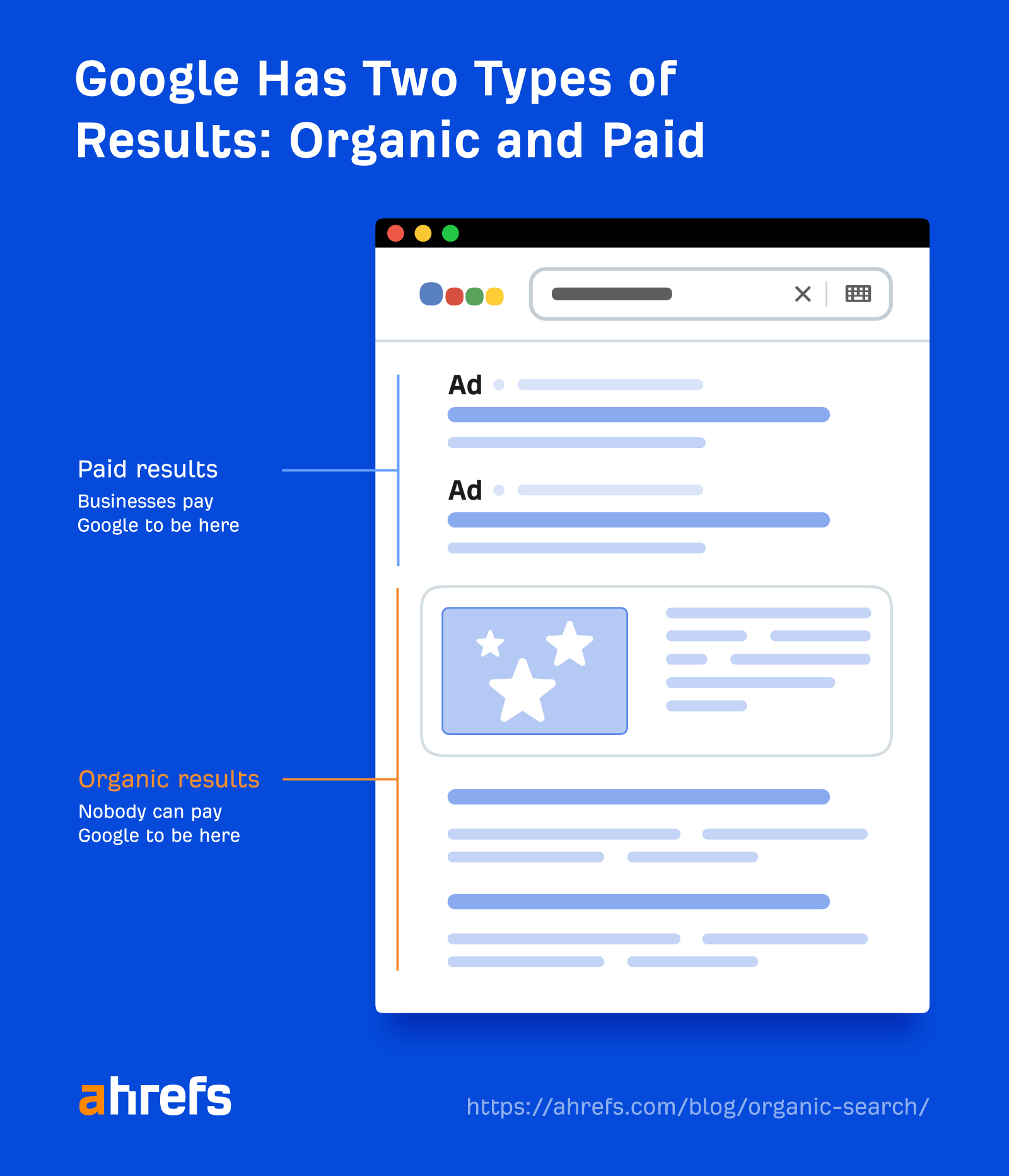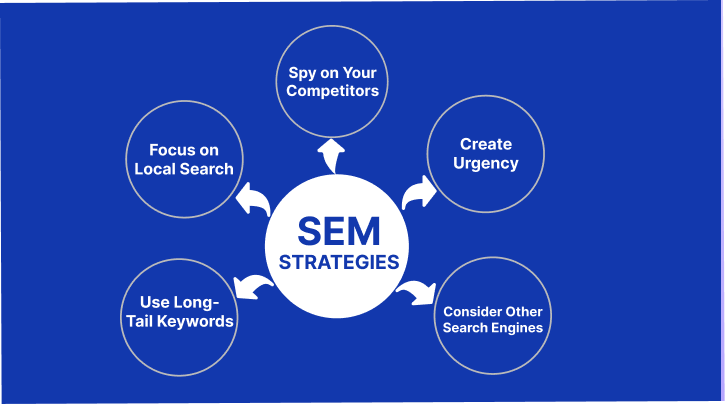Content
SHARE

Search Engine Marketing (SEM) has become increasingly important for accountants to maximise Return on Investment (ROI) and gain a competitive edge in the digital landscape. Accounting firms can effectively reach their target audience and achieve their business goals by harnessing the power of Pay-Per-Click (PPC) campaigns and leveraging Google Ads. In this article, we will delve into the basics of SEM for accountants, explore the key components of a successful SEM strategy, and provide insights on how to maximise ROI with PPC and Google Ads.
Understanding the Basics of SEM for Accountants
What Is SEM, and Why Is It Important for Accountants?
Search Engine Marketing (SEM) refers to the practice of promoting a business through paid advertisements that appear on search engine results pages (SERPs). SEM is crucial for accountants because it increases their online visibility, drives targeted website traffic and generates more qualified leads. Accountants need to understand the intricacies of SEM to stay competitive in the digital landscape. By effectively utilising SEM strategies, accountants can position themselves in front of potential clients actively seeking accounting services online. This targeted approach enhances brand awareness and boosts the chances of converting leads into loyal clients.
The Role of PPC in SEM
Pay-per-click (PPC) advertising is a type of search engine marketing where advertisers pay a fee each time their ad is clicked. It provides accountants with a cost-effective way to drive immediate website traffic and capture potential clients actively searching for accounting services. PPC campaigns can be tailored to suit accountants’ specific needs, targeting a particular geographic location or focusing on specific accounting services. By monitoring and adjusting PPC campaigns regularly, accountants can ensure they maximise their return on investment and effectively reach the right audience.
Google Ads: A Key Player in SEM Strategy
When it comes to SEM, Google Ads is undeniably a key player. With its vast reach and powerful targeting capabilities, Google Ads enables accountants to display their ads to potential clients when they search for accounting services. This level of precision targeting ensures that accountants are maximising their chances of attracting qualified leads. Google Ads offers a range of tools and features that accountants can leverage to enhance their SEM efforts. From keyword research to ad scheduling, Google Ads provides accountants with the flexibility and control needed to create successful SEM campaigns. By staying informed about the latest trends and updates in Google Ads, accountants can stay ahead of the competition and drive sustainable growth for their accounting practices.
Building a Successful SEM Strategy for Accountants
Identifying Your Target Audience
Before diving into SEM, accountants must clearly define their target audience. Understanding who your ideal clients are and what they are searching for will greatly enhance the effectiveness of your SEM campaigns. This includes factors such as demographics, location, and specific accounting needs. Accountants should also consider the psychographics of their target audience, delving into their behaviours, interests, and pain points. By understanding potential clients’ motivations and challenges, accountants can tailor their SEM strategy to resonate with them on a deeper level. This personalised approach can lead to higher engagement and conversion rates, ultimately driving business growth.
Choosing the Right Keywords for Your PPC Campaigns
Selecting the right keywords is essential for the success of your PPC campaigns. Conduct thorough keyword research to identify relevant and high-performing keywords that align with your accounting services. By selecting the right keywords, you can attract quality traffic to your website and increase the chances of conversions.
Furthermore, accountants should consider utilising long-tail keywords in their PPC campaigns. These longer, more specific phrases may have lower search volumes but often result in higher conversion rates. Accountants can reach potential clients actively seeking their expertise by targeting long-tail keywords related to specialised accounting services or niche industries.
Creating Compelling Ad Copy
In the competitive world of SEM, accountants must create compelling ad copy that stands out. Use persuasive language, highlight your unique selling points, and clearly communicate the value you offer. Well-crafted ad copy will attract clicks and encourage potential clients to take the desired action on your website. Accountants should also consider incorporating ad extensions into their SEM strategy. These additional pieces of information, such as callouts, site links, and structured snippets, provide more reasons for potential clients to choose your accounting services. By maximising the use of ad extensions, accountants can increase visibility, improve click-through rates, and drive more qualified leads to their website.
Maximising ROI with PPC and Google Ads
Understanding ROI in the Context of SEM
Return on Investment (ROI) is a critical metric to measure the success of your SEM efforts. In the context of SEM, ROI refers to the revenue generated from your PPC campaigns compared to the amount spent on advertising. To maximise ROI, accountants need to ensure that their PPC campaigns are driving high-quality traffic and effectively converting them into clients. Accountants must delve into the intricacies of ROI analysis to truly understand the impact of their SEM strategies. By conducting thorough assessments of the cost per click, conversion rates, and customer lifetime value, accountants can gain valuable insights into the effectiveness of their PPC campaigns.
Strategies for Improving ROI with PPC
Accountants can employ several strategies to improve their ROI with PPC. These include refining keyword targeting, optimising ad copy for higher click-through rates, and constantly monitoring and adjusting campaigns based on performance data. Implementing these strategies will help accountants get the most out of their PPC budget and maximise their return on investment. Accountants should also focus on enhancing the user experience on their landing pages to improve conversion rates. By conducting A/B testing, analysing user behaviour, and implementing responsive design, accountants can create a seamless journey for potential clients, ultimately boosting ROI.
Leveraging Google Ads for Higher ROI
Google Ads offers various tools and features to help accountants achieve higher ROI. Utilise targeting options such as location and device targeting to narrow your audience and increase the relevancy of your ads. Furthermore, take advantage of ad extensions to provide additional information and encourage potential clients to take action. Accountants can explore the power of remarketing through Google Ads to re-engage with users who have previously visited their websites. By tailoring ads based on past interactions and interests, accountants can increase brand recall and drive conversions, ultimately leading to a higher ROI.
Monitoring and Adjusting Your SEM Strategy
The Importance of Regular SEM Audits
Regular SEM audits are essential to ensure that your SEM strategy is performing optimally. Audits allow accountants to identify areas for improvement, such as ineffective keywords or underperforming campaigns. You can make data-driven adjustments to maximise your results by closely monitoring your SEM performance.
Making Data-Driven Adjustments To Your Strategy
Data is the backbone of successful SEM strategies. Analyse performance metrics such as click-through rates, conversion rates, and cost per conversion to gain insights into the effectiveness of your campaigns. Use this data to make informed decisions and continuously refine your SEM strategies for better results.
Staying Updated with SEM Trends and Google Ads Updates
SEM is a dynamic field that is constantly evolving. Accountants must stay updated with the latest trends, algorithm changes, and Google Ads updates. You can adapt your SEM strategies accordingly and maintain a competitive advantage in the ever-changing digital landscape by staying informed. One important trend to keep an eye on is the rise of voice search. With the increasing popularity of virtual assistants like Siri and Alexa, more and more users are using voice commands to search for information. This has implications for SEM strategies, as keywords and search queries may differ when spoken rather than typed. Accountants should consider optimising their campaigns for voice search to ensure they capture this growing segment of users.
Another aspect to consider is the importance of local SEO in SEM strategies. For businesses that rely on local customers, optimising your SEM campaigns to target specific geographical areas can significantly improve your results. By incorporating location-specific keywords and tailoring your ad copy to appeal to local customers, you can increase your visibility and attract more relevant traffic to your website. The impact of mobile devices on SEM strategies is worth mentioning. With most internet users accessing the web through their smartphones, it is vital to ensure that your SEM campaigns are mobile-friendly. This means optimising your landing pages for mobile devices, creating responsive ad formats, and considering the unique user behaviour associated with mobile browsing.
SEM offers accountants a valuable opportunity to maximise their ROI and reach their target audience effectively. By understanding the basics of SEM, building a comprehensive SEM strategy, and leveraging the power of PPC and Google Ads, accountants can drive qualified traffic to their websites and achieve their business objectives. With regular monitoring and adjustments, accountants can optimise their SEM efforts and stay ahead of the competition. So, make SEM a key component of your marketing strategy and embark on the journey towards SEM success!
Frequently Asked Questions About Maximising ROI with PPC and Google Ads
What Is SEM, and How Can It Benefit Accountants?
Search Engine Marketing (SEM) involves using paid advertising to increase visibility on search engine results pages. For accountants, SEM can drive targeted traffic to their websites, leading to higher conversion rates and enhanced client acquisition.
How Can Accountants Maximise ROI With PPC and Google Ads?
Accountants can maximise ROI by selecting relevant keywords, crafting compelling ad copy, targeting specific demographics, and continuously monitoring and adjusting campaigns for optimal performance.
What Are Some Key Strategies For Accountants Using Google Ads?
Key strategies include focusing on local SEO keywords to attract local clients, using negative keywords to refine targeting, and leveraging ad extensions to provide additional information like services offered and contact details.
Can Accountants Measure the Success of Their SEM Efforts?
Yes, accountants can measure SEM success by tracking metrics such as click-through rates (CTR), conversion rates, cost per acquisition (CPA), and overall return on investment (ROI). Utilising Google Analytics and Ads reporting tools can provide insights into campaign performance and areas for improvement.




![What Is Search Engine Marketing (SEM)? [Explained]](https://static.semrush.com/blog/uploads/media/e5/33/e5333aa62f07d34698ed597756fb501e/EN-Search-Engine-Marketing-Graphics-01%20%281%29.png)











